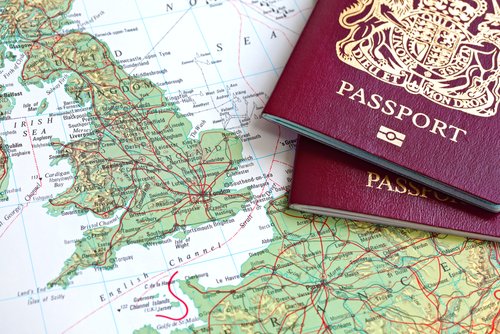We forgot about immigration – will this turn out to be a grave mistake?
The 2019 election campaign is drawing to a close, but rather surprisingly, immigration has fallen the radar during the past month, overshadowed by the broader Brexit process, anti-Semitism, calls for the Prime Minister to be interviewed by Andrew Neil and so on.

The 2019 election campaign is drawing to a close, but rather surprisingly, immigration has fallen the radar during the past month, overshadowed by the broader Brexit process, anti-Semitism, calls for the Prime Minister to be interviewed by Andrew Neil and so on. This is only confirmed by the fact that PM Boris Johnson waited until a few days before election day, rather than earlier in the campaign, to reveal more detailed plans for the Conservatives’ “Australian style” points based system.
But the result of the election could mark a watershed moment in the long history of UK immigration policy. The next parliament has a unique opportunity, and indeed arguably a responsibility, to hit the reset button on immigration, and shape a new system that addresses public concerns as well as meeting the needs of the economy.
However, at this critical juncture, it is a shame that we have not had a proper and honest debate about immigration. It certainly has not reflected the importance of the once-in-a-generation decisions that need be made on the future UK immigration system. The Prime Minister’s newly-revealed plans about the future immigration system should have been debated during the campaign, or prior to it, rather than being somewhat of an afterthought.
Intriguingly some have argued that the lack of debate might even reflect the possibility that immigration has ceased to be such a critical issue for the British public? After all, polling suggests that the public no longer sees immigration as one of the most important issues facing the UK, and indeed the trend of increasingly positive attitudes towards immigration – which started decades ago – has continued and even accelerated since the Brexit referendum.
The British public now see EU/Brexit as the most important issue facing the UK, according to polling. However, for many people, concerns about EU/Brexit may be intertwined with immigration concerns, so the apparent reduction in the importance of immigration may have been overstated by experts and the media. It is hard to imagine that immigration is very far away from public consciousness, especially given the recent heated and polarising debate on the subject only three years ago.
It is true that some developments since the referendum could have made the British people more positive about immigration. The Windrush scandal and the rights of EU citizens have highlighted the human and personal costs of migration. There has also been more debate about the positive contributions of migrants to the economy and public services, including the NHS. People may even have started to notice immigrants more among their friends and colleagues, and some will be less concerned about a current refugee crisis compared to a few years ago.
Finally, Brexit will have reassured people that something finally will be done to address their long-standing public concerns about immigration. This reassurance may have been confirmed by the dramatic fall in EU immigration since the referendum, though this of course has nothing to do with policy reforms and has largely been offset by corresponding rises in (controlled) non-EU immigration.
But this would be a shaky foundation. If the next parliament fails to design an immigration system that addresses people’s concerns and meets the economy’s requirements. Or if other events, as they often do, override the importance of immigration policy (think how the refugee crisis affected the immigration debate, or how the UK’s decision to leave the EU has affected migration flows), then public concerns about immigration could reappear at the centre of public and policy debate as quickly as it seems to have disappeared.
If it does, political commentators and indeed future historians will wonder why we did not talk more about immigration during the 2019 General Election. Why was the issue – which arguably led to this Brexit referendum in the first place – hardly debated and scrutinised during the campaign? This means that landmark decisions about the future UK immigration system may be taken in a void, with little consultation, and based on assumptions without measure about public opinion.
For our Full Immigration Brief: please go to:














